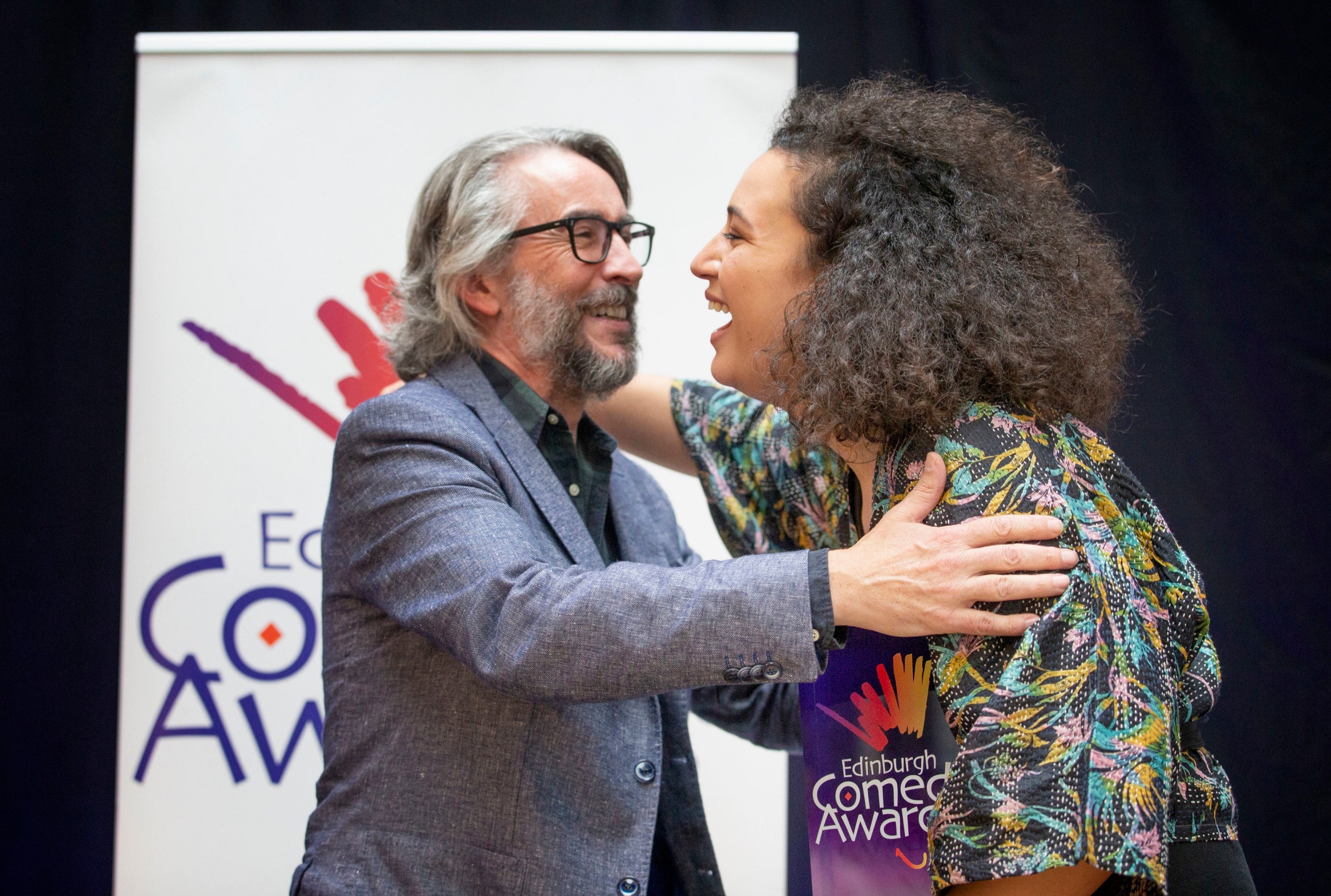When I won the Edinburgh Comedy Award in the 1990s we were debating whether women could be funny. Now we wonder if the men can keep up
Imposter syndrome hit me immediately. Even as the flash bulbs were going off in my face, I started to feel a bit sick. if I look carefully at the press photos now, I can recognise the panic in my eyes


And this year’s Edinburgh Comedy Award for the best show at the fringe goes to Rose Matafeo, the 26-year-old from New Zealand. Twenty-six, folks. It's an incredible achievement and I hope she enjoys every second of her win, I hope they give her the keys to the castle, her own tartan and a ticket to the Tattoo should she ever want one!
I was 35 and had been knocking around for years when I won the same award back in 1995 and in some respects it’s still the most impressive thing on my CV.
Back then it was called the Perrier Award and the trophy, a silver bottle on a wooden plinth, complete with an inscription, still sits on a shelf above my head as I type.
To be honest, it’s so badly tarnished now that I can barely read my own name, but 23 years ago a big hoo-ha was made of this win, possibly because I was the first solo female in the history of the awards to nab the prize and possibly because not much else was going on.
Even The Guardian put me on its front page with a picture taken the morning after the night before: me looking bleary-eyed and mascara-stained in my dressing gown, beehive askew but still kind of cute.
In reality, I was hungover to the teeth, horribly shocked and shaken to the core, I wanted to go home and hide, I missed my partner and I missed my daughter – she was only six, I was a terrible mother, I felt guilty and unworthy.
I should have been thrilled but I couldn’t stop crying. The next day I wept through a press interview with a journalist, who, after ten minutes of incoherent blubbing from yours truly, turned off her tape recorder and said: “You’re in no fit state to do this, I’m going to leave you alone,” which was pretty extraordinary considering she was from the Daily Mail.
That night I had to perform the award-winning show again – and this time in front of a crowd who seemed to look at me as if to say: “Well come on, you so called “Queen of Comedy”, show us your funny jewels.”
For the rest of the festival (fortunately just a couple of nights), I performed like a really bad open spot, the audiences looked baffled, some of them actually scratched their heads and I kept thinking: “Any moment now, they will take the wretched thing off me, I don’t deserve it anyway.”
For years I have often wondered whether my acute winner’s paranoia was a specifically female reaction or whether I was just being spectacularly wet, but I’ve since come to the conclusion that it was because in those days people were still genuinely arguing whether women had the right to be funny and I felt a bit caught up in the cross-fire.
With the debate still raging and the fact that a lot of people were taken aback by my win, I started to doubt the validity of it.
Was I really any good? I tell you, had twitter been around in those days, I’d have probably jumped off Arthur’s Seat.
Imposter syndrome hit me more or less as soon as I got my sweaty hands on that prize. Even as the flash bulbs were going off in my face – which lets be honest, is what I went into showbiz for – I started to feel a bit sick and if I look carefully at the press photos now, I can recognise the panic in my eyes.
Of course since then, the climate for women in comedy has changed enormously for the better, and these days it would be freakish not to see at least one woman’s name on the short list. In fact the Best Newcomer list 2018 featured five women and just one man (Ciaran Dowd, the eventual winner) which shows just how far the industry as come and how its still changing.
Finally more ethnically diverse nominees are coming through, although it has taken 37 years since the awards began in 1981 for a person of colour to win. Matafeo, a blend of Samoan, Croatian, and Scottish ethnicities, won the prize this year.
She is not alone, there are scores of funny young women out there of all shapes, sizes and colours, and finally their voices are being properly heard, be it on stage, telly or podcasts.
A lot of this is down to a cultural shift in the attitude of audiences. In the 1980s, it used to be completely normal to be heckled off stage in comedy clubs for having breasts. Not any more.
As for TV, these days if I accidentally catch an increasingly rare all-white male panel show, it immediately looks quaint and old-fashioned.
In 2018, it’s only the real knuckle-draggers who still question whether women are funny. In fact, in a few years’ time if things keep going the way they are, we might be wondering if the men can keep up. Good luck, lads.



Join our commenting forum
Join thought-provoking conversations, follow other Independent readers and see their replies